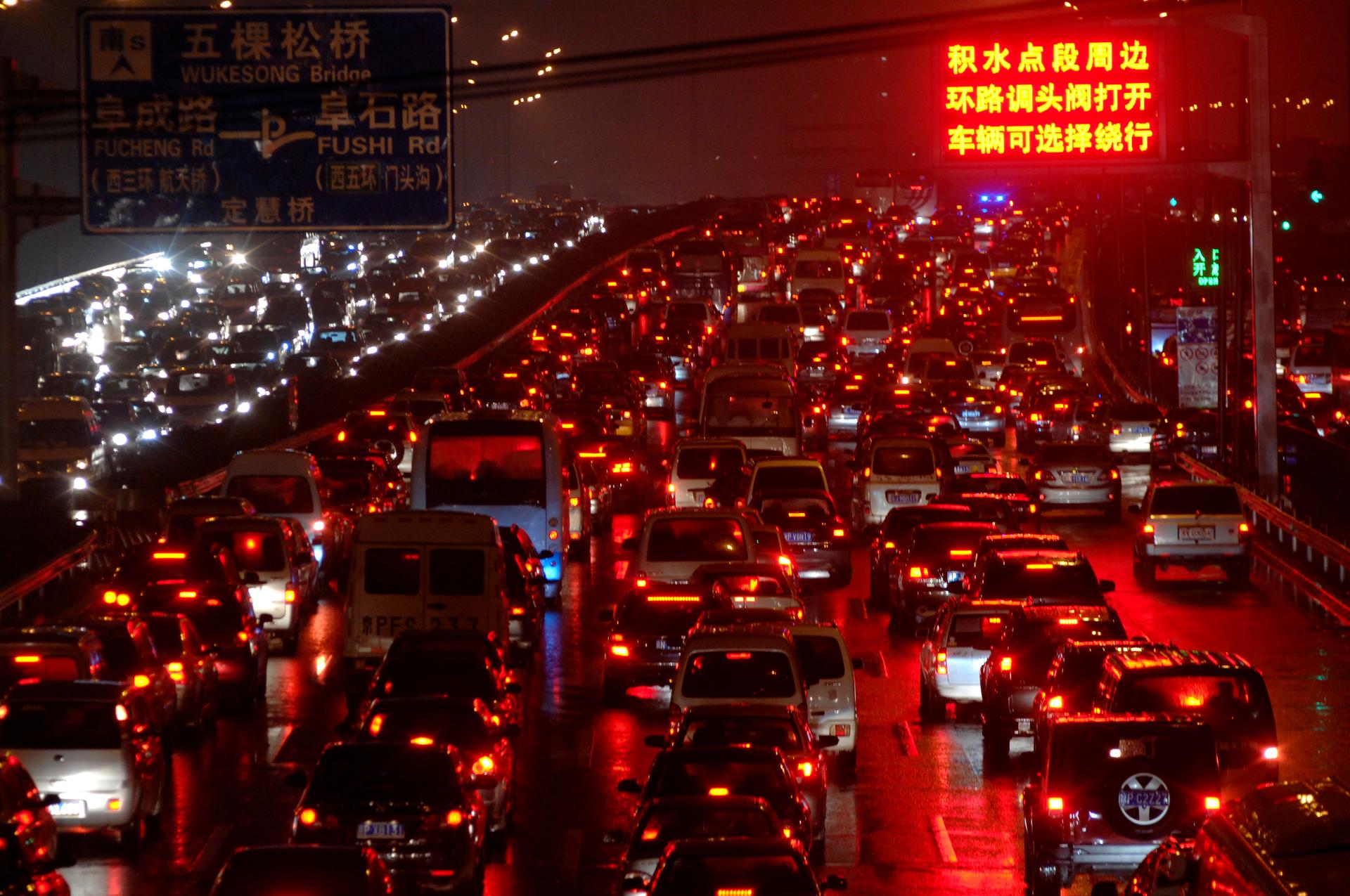Beijing’s controversial plan to cut traffic in half
A traffic jam in Beijing on June 23, 2011 due to rainstorms that flooded a large part of the city.
The spectacular traffic jams that plague Beijing have pushed the capital city to consider a measure that could cut the number of cars on the road in half.
First applied during the 2008 Olympic Games, the rule requires certain cars to stay off the road at specified times, in designated areas, based on license plate numbers, according to Yahoo News.
During the two weeks of the Olympics, traffic was reduced by 21 percent, indicating that the measure would be effective if put in place again.
But there is reason to think twice: To circumvent the inconvenience and potential confusion of not being allowed to drive three or four days a week, Chinese drivers with extra cash might end up buying additional cars, warns Wang Limei, secretary-general of the China Road Transport Association.
The idea of odd-even rationing is not new; it was put into effect in the United States to deal with oil crises in the 1970s.
A drop in traffic in Beijing would also help combat the city's serious air pollution problem.
More from our partners at Business Insider:
Business Insider: How The Forces Of Nature Took Huge Chunk Out Of GDP
Business Insider: Google, Again, Bested By A Rival In Terms Of Ad Reach
Business Insider: Mississippi School Charged With Arresting Kids For Flatulence, Wrong Color Socks, Breaking Pencils
Business Insider: MICROSOFT: The iPad Mini Is An Overpriced Toy
Business Insider: I'm Sorry, But The Statement Citigroup Made About Its CEO Quitting Is Basically Fraud
We want to hear your feedback so we can keep improving our website, theworld.org. Please fill out this quick survey and let us know your thoughts (your answers will be anonymous). Thanks for your time!
